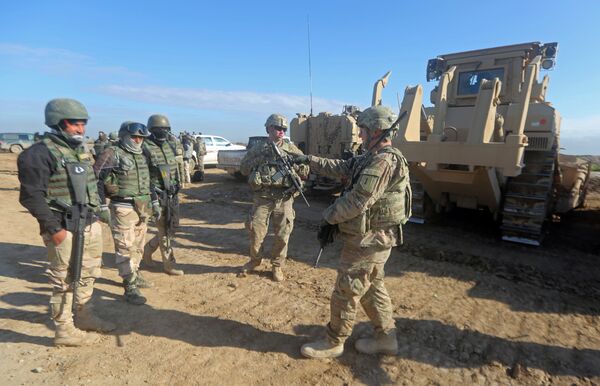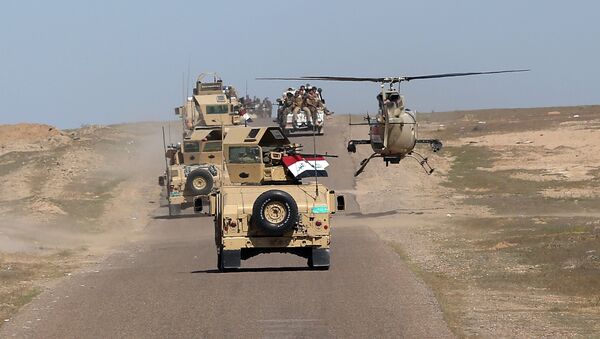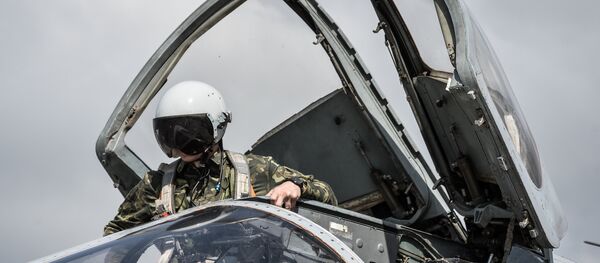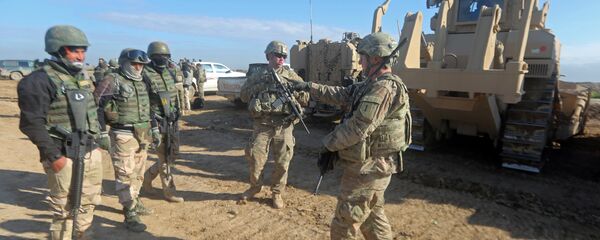Senator John McCain is fuming about the Obama administration's hesitancy to put huge numbers of American troops on the ground in Iraq.
"I fear this administration's grudging incrementalism in the war against the Islamic State (ISIL) [Daesh] risks another slow, grinding failure for our nation," McCain wrote in his open letter to US Secretary of Defense Ashton Carter on April, 5.
However, it seems that Carter shares McCain's concerns and aspirations. A few days later, during his state visit to India the US Secretary of Defense underscored that the Pentagon is determined to expand its military activities in Iraq.
"We're going to accelerate the military campaign as fast as we can," Carter told reporters.
"There's no question that some of them depend upon political cohesion and progress in Baghdad. But also Erbil. But, we're moving as fast as we can on the military campaign," he added.
Kristian calls attention to the fact that McCain is apparently unwilling to take into consideration the "cost, consequence, or recent history" of the US' longstanding "war on terror."
"There was a time, perhaps, when McCain's argument would have been less absurd," she writes in her article for The National Interest.
"That time was before we'd spent trillions (and mysteriously lost billions) of dollars on fifteen years of quagmire-all while the $19 trillion national debt mounts ever higher, no matter which party is in charge. It was before we'd deployed hundreds of thousands of Americans halfway around the globe to fight wars which seem to have no end in sight. It was before nearly 8,000 of them died in the process," the US scholar underscores.

Citing Dr. Peter Neumann of the International Centre for the Study of Radicalization, Kristian points out that the US military acceleration in Iraq will play directly into the hands of Daesh and its Islamist sympathizes.
"They are aching for a conflict with the West," Neumann told Frank Gardner of the BBC back in September 2014.
"The execution videos [of Western hostages] were bait to provoke an over-reaction. As soon as there are Western boots on the ground it then becomes the old narrative of the West versus Islam and they can claim they are fighting the occupation. They are trying to suck us in," he stressed.
But that is not all. The Iraqis themselves strongly oppose the US' renewed intervention in their homeland.
In his interview with Sputnik on March 21, former US Assistant Secretary of Defense Lawrence Korb underscored that "Abadi has been pretty adamant about not wanting a lot of American troops."
"So I don't think you are going to see significantly more [US troops]," Korb told Sputnik.
Kristian also refers to the US Office of Inspector General (OIG) study that clearly indicates that although "nearly all Iraqis have unfavorable views of [Daesh]," about 50 percent of Iraqi Sunnis and Shiites "now say that they completely oppose" the US-led coalition against the terrorist group.
"In this light, McCain's surge advice becomes even more preposterous. Is it really wise to spend more blood and treasure to play into the plans of terrorists and foist our assistance on a population that doesn't want it?" she asks.
"No reasonable observer could honestly answer 'yes'," the US scholar concludes.




